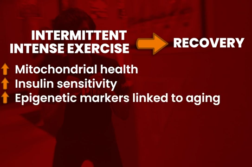MUNCIE, Ind. (Ivanhoe Newswire)— The National Sleep Foundation recommends adults get at least seven hours of sleep a night to stay healthy. But researchers say more than one-third of American workers were not getting enough sleep in 2018, and now, during the pandemic, those numbers are projected to increase. More on who may be most at risk, and what they can do to protect their health when they are sleep deprived.
Sleep— seven hours to give your body a chance to reset. As a nation, the number of people who get the prescribed amount has dropped from 75 percent in 2008 to 64 percent in 2018. Health science researcher Jagdish Khubchandani first analyzed the sleep habits of 150,000 Americans through 2018 and then updated those results earlier this year.
“You’ll find that there are some groups who sleep less than five, four. People with multiple jobs in the lowest socioeconomic strata, people in the oSuth, police officers, doctors, nurses,” explained Jagdish Khubchadani, PhD, a health sciences researcher at Ball State University.
Researchers say only 50 percent of police officers and 55 percent of health care workers reported getting enough sleep. Over time, the effects of sleep deprivation add up.
“And in the long run, you continue to gain weight. You have a risk of heart disease, cancers and stroke because sleep is like a medicine,” illustrated Khubchadani.
Researchers say it’s important to keep the same sleep schedule during the pandemic. Avoid heavy and sugary foods for several hours before bed and cut back on screen time and social media.
Researchers say one other new finding involves women and sleep. The percentage of women reporting too little sleep grew from 31 percent in 2010 to almost 36 percent in 2018 and those numbers are also projected to grow this year due to greater socioeconomic stress and work-life balance issues.
Contributors to this news report include: Cyndy McGrath, Executive Producer & Field Producer; Kirk Manson, Videographer; Roque Correa, Editor.
To receive a free weekly e-mail on Medical Breakthroughs from Ivanhoe, sign up at: http://www.ivanhoe.com/ftk
MEDICAL BREAKTHROUGHS
RESEARCH SUMMARY
TOPIC: SLEEP-DEPRIVED DURING COVID: LONG-RANGE EFFECTS
REPORT: MB #4805
BACKGROUND: Getting the proper amount of sleep is extremely important, regardless of age. For premium health, most experts recommend seven to nine hours every night. Young kids, toddlers, and infants need even more as they are still developing and growing. For newborns and infants as many as 12 to 17 hours is recommended. For toddlers and preschool age children, eleven to 13 hours is recommended. And for school-age and teenagers eight to eleven hours is recommended. For adults over the age of 65 seven to eight hours is recommended. Knowing the recommended amounts for each age group is a great starting point. It is important to reflect on individual needs, overall health, and feelings based on factors such as activity level, mood, and fatigue.
(Source: https://www.sleepfoundation.org/articles/how-much-sleep-do-we-really-need)
DIAGNOSING: These recommendations serve as a rule of thumb or guideline to understanding sleep and acknowledge that the ideal amount of sleep is specific from person to person. Ask questions like are you productive and happy on seven hours of sleep? Or do you notice that it takes you a while to wake up and feel energized? Do you have a high level of energy in your day-to-day tasks? Do you depend on caffeine? In a 2016 Centers for Disease Control report, researchers stated that one in three Americans do not get enough sleep to support good health. Getting less than seven hours per a day puts people at risk for obesity, diabetes, hypertension, heart disease, stroke, and chronic mental distress.
(Source: https://www.cdc.gov/media/releases/2016/p0215-enough-sleep.html)
NEW EFFECTS: In 2020 with added uncontrollable stressors like the worldwide pandemic and national unrest, the amount of sleep per the average American is dropping even lower than the minimum recommendations. Jagdish Khubchadani, PhD, Professor of Health Science at Ball State University says, “People may not realize that they’re at risk. So, you may continue to find people who would say I sleep six hours, five hours. I’m still doing fine. But eventually it builds up in your system. So, in the short term you have nervous disorders, anxiety, your reflexes become poor, your judgment becomes poor, anger management becomes an issue and in the long run you continue to gain weight. You have a risk of heart disease, cancers and stroke because sleep is like a medicine. That’s your time when you rejuvenate. You grow again. You feel relaxed, fulfilled. It’s that time needed to you know calm down and reenergize yourself.”
(Source: Jagdish Khubchadani, PhD, Professor of Health Science at Ball State University specializes in social epidemiology demography and public health)
FOR MORE INFORMATION ON THIS REPORT, PLEASE CONTACT:
MARC RANSFORD
If this story or any other Ivanhoe story has impacted your life or prompted you or someone you know to seek or change treatments, please let us know by contacting Marjorie Bekaert Thomas at mthomas@ivanhoe.com




